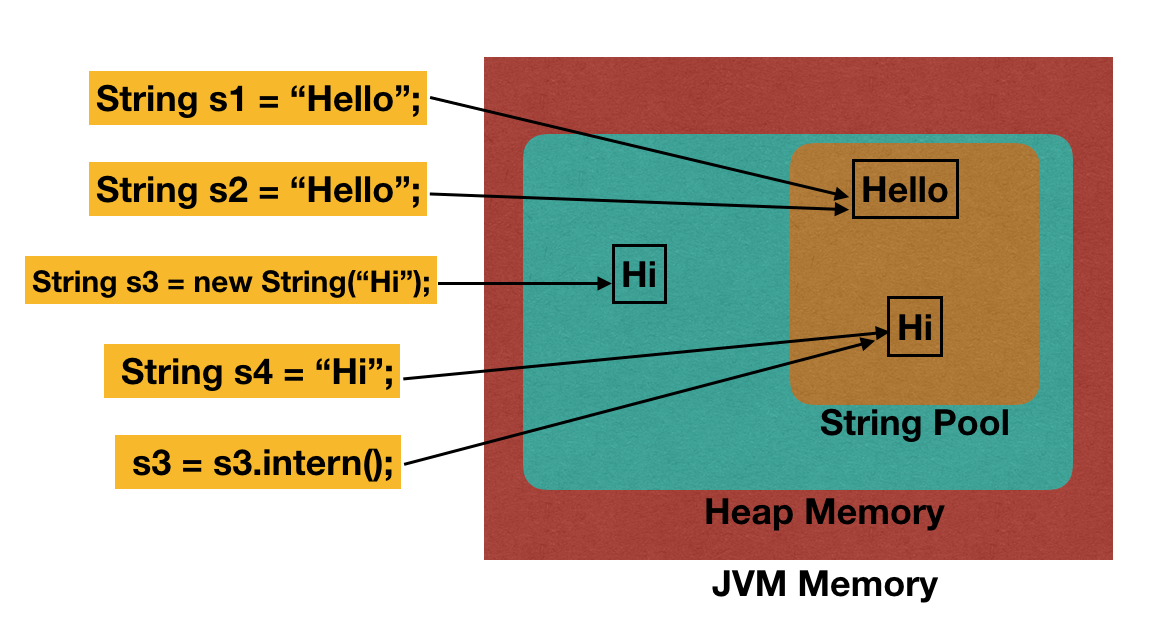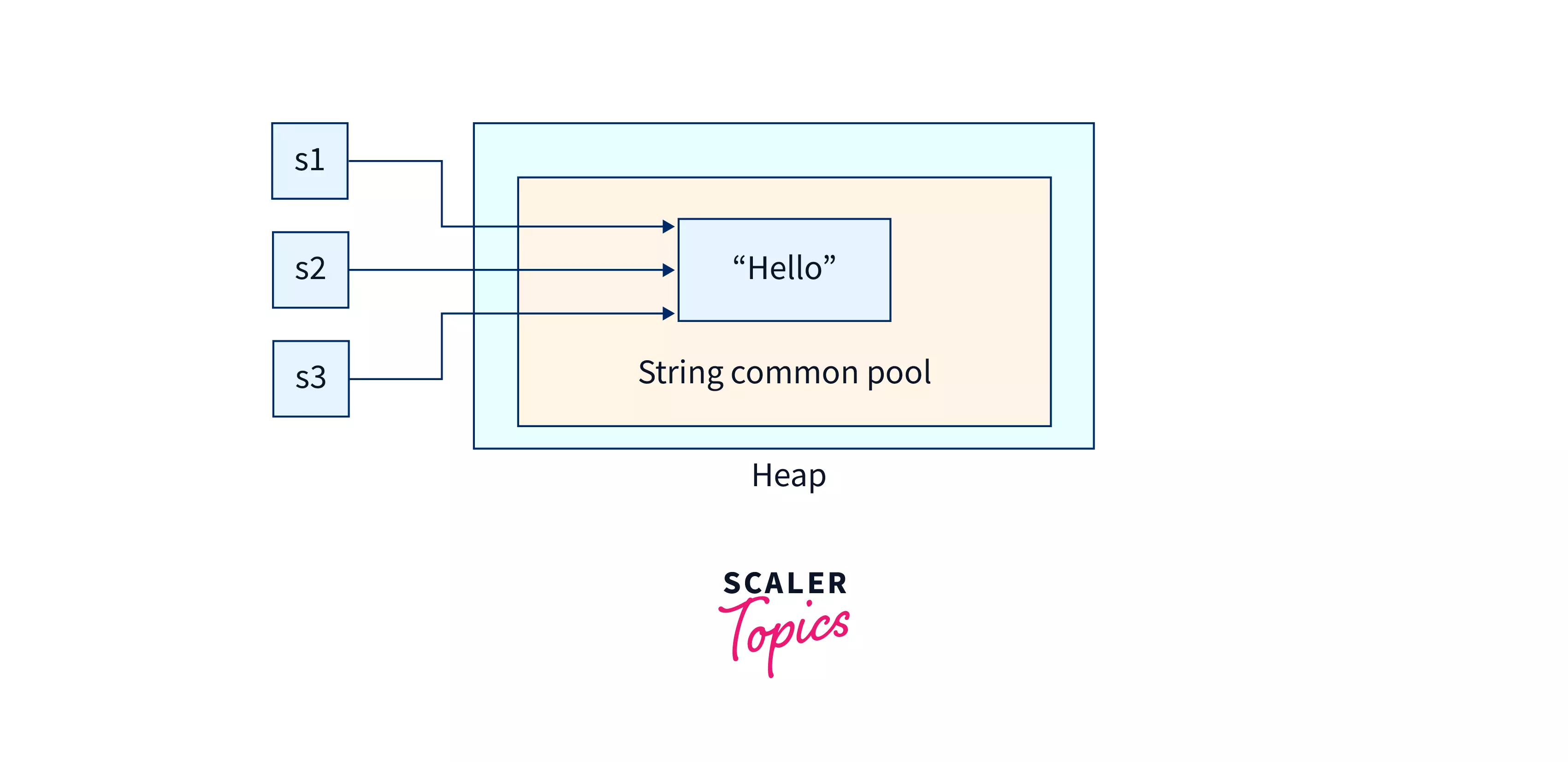Why Are Strings Immutable in Java? Checking Out the Style Choices
Why Are Strings Immutable in Java? Checking Out the Style Choices
Blog Article
What Is Unalterable Strings and Exactly How It Functions
In the realm of programming, understanding the idea of unalterable strings is critical for creating durable and safe and secure applications. Immutable strings refer to strings that can not be modified after they are produced, making sure information honesty and predictability within the code. This fundamental principle plays an essential function in numerous programming languages and uses an one-of-a-kind technique to taking care of data. By checking out the complexities of exactly how unalterable strings operate, one can reveal a globe of benefits and possibilities that can elevate the high quality and performance of software application growth.
The Basics of Immutable Strings
Unalterable strings, as a fundamental concept in programs, are character series that can not be altered as soon as they are developed. This indicates that when a string is designated a value, that worth can not be altered. In languages like Python and Java, strings are immutable items, bring about different ramifications in regards to memory management and data integrity.
One of the crucial advantages of immutable strings is that they provide a complacency in data manipulation. Considering that the web content of an immutable string can not be changed, it guarantees that the initial information remains intact, minimizing the threat of unintentional adjustments throughout program implementation (Why are strings immutable in Java?). This home additionally simplifies debugging processes, as designers can trust that as soon as a string is specified, its value will certainly not be accidentally altered
When a brand-new string is developed based on an existing one, instead than customizing the original string, the brand-new worth is saved individually. Generally, recognizing the basics of unalterable strings is vital for understanding programming concepts and enhancing code performance.
Benefits of Unalterable Strings
Building upon the safety and security and efficiency benefits of immutable strings, their benefits extend to improving code integrity and streamlining concurrent shows jobs. By being immutable, strings can not be changed after development, which eliminates the danger of unplanned changes in the information they save. This inherent immutability ensures that as soon as a string is developed, its worth continues to be constant throughout the program's execution, minimizing the opportunities of bugs brought on by unforeseen alterations.
In addition, unalterable strings add to code integrity by making it easier to reason concerning the state of a program. Considering that strings can not be altered, designers can rely on that a string will constantly hold the same value, simplifying debugging and upkeep initiatives. This predictability results in much more steady and trustworthy codebases.

Application in Programs Languages
Within numerous programming languages, the unification of unalterable strings is why not try this out an essential facet that affects how data is dealt with and manipulated within code structures. The implementation of unalterable strings varies throughout various programs languages, with each language supplying its own mechanisms to support this idea.

On the other hand, languages like C and C++ do not have integrated support for immutable strings. Programmers in these languages need to by hand implement immutability by imposing policies within their code to stop direct modifications to string items.
Ideal Practices for Working With Immutable Strings
When dealing with immutable strings in programs languages like Java and Python, adhering to ideal methods makes sure protected and reliable data adjustment. Among the essential ideal methods is to make use of StringBuilder or StringBuffer as opposed to straight manipulating strings, particularly when dealing with substantial concatenation procedures. These classes provide mutable choices for string manipulation, assisting to avoid unnecessary memory allowances and boosting efficiency.
Another best practice is to make use of string interpolation or formatting works given by the language as opposed to hands-on concatenation. This not just boosts readability yet likewise aids in stopping usual risks such as unintentional string alterations. In addition, when functioning with sensitive information such as passwords or API secrets, it is vital to stay clear of saving them as ordinary message in unalterable strings. Using safe storage space devices like char varieties or specialized libraries for dealing with sensitive details assists minimize security risks connected with immutable strings.
Real-world Applications and Instances
Checking out practical applications of unalterable strings in numerous industries reveals their considerable influence on data integrity and system reliability. In the healthcare sector, unalterable strings play an essential function in guaranteeing the safety and privacy of individual data. By avoiding unauthorized modifications to delicate info such as clinical records and prescriptions, unalterable strings assist keep compliance with rigorous privacy laws like HIPAA.
Banks likewise take advantage of the unalterable nature of strings to continue reading this enhance the safety and security of client data and purchase records. Unalterable strings assist prevent fraud and unapproved alterations to economic info, providing a durable defense against cyber dangers and ensuring the trust fund and self-confidence of customers.

Final Thought
To conclude, unalterable strings are fixed and stable sequences of characters that use benefits such as thread security and enhanced performance in programs. They are executed in different programming languages to make sure information stability and safety. Finest techniques for dealing with immutable strings consist of preventing direct adjustments and utilizing methods that return new string things. Real-world applications of unalterable strings include data file encryption, caching, and check out this site string manipulation tasks.
Immutable strings refer to strings that can not be changed after they are developed, making certain information stability and predictability within the code. When a new string is produced based on an existing one, rather than modifying the original string, the new value is stored separately.In languages like Java and Python, strings are immutable by default, indicating that once a string object is created, its value can not be altered - Why are strings immutable in Java?. Best methods for working with immutable strings consist of avoiding straight modifications and using techniques that return new string things. Real-world applications of unalterable strings include information security, caching, and string control jobs
Report this page